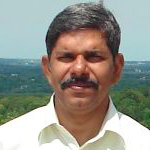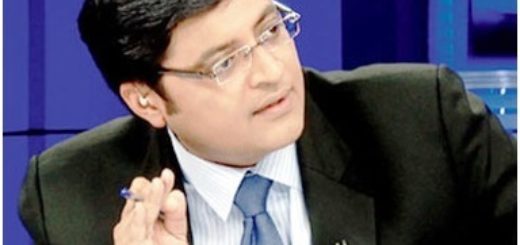Laity4Unity, Delhi, triumphs – Rome unequivocally Endorses its stand on Eparchy

(Note: All is well that ends well. Finally the battle of wits led by a determined core group of nine with Kurian Joseph as its enlightened leader and thousands of Syromalabar laity following, that lasted for more than one and a half years from 24th May 2014 to 28th January 28 2016 brought bright smiles with pryerful “thank you Lord” on the faces of the whole battalion and frown on the Eparchy promoters treating laity like chattel or cattle, transferring them from one shed (diocese) to another, ignoring and giving too hoots to the wishes of the transferred.
One of the big bone of contenton of Syromalabar church has been that it should always get “free state certificate” not from a Latin Parish where the marriage partner is residing but from its own Eparchy headquarters in the area which is done away with now. It has to be from the parish where one resides which alone is most sensible. A second is the seal of approval given that everyone has the right and duty to follow one’s Rite and get sacramental service from the parish one resides, irrespective of the Rite of the parish. The Eparchy leadership was adamant that all should be registered members to get sacramental service
More comments to follow after digesting all details and their implications. What  follows is introductory comments from Kurian Joseph who takes care to be humble and very subdued and not gloating over, the legitimate victory of the just cause he and his team has been championing. Now please listen to him. james kottoor, editor, ccv)
follows is introductory comments from Kurian Joseph who takes care to be humble and very subdued and not gloating over, the legitimate victory of the just cause he and his team has been championing. Now please listen to him. james kottoor, editor, ccv)
Dear all,
Yesterday evening we met Archbishop Anil Couto of Delhi, who kindly handed over to us the “Instruction” dated 28 January 2016 Ref. 197/2014 in response to our Petition dated 24 May 2014. This “Instruction” came from no less than the Prefect of Congregatio Pro Ecclesiiis Orientalibus (Congregation for Oriental Churches). It covers all the SM faithful “residing in the territory of the Eparchy of Faridabad”. It is an extremely positive and favourable response and takes into account all the issues and difficulties we highlighted in our Petition.
We were overwhelmed and humbled – and our faith renewed – by the way the Holy Spirit works in the Church. We attach the full 2-page document for your study. Here, however, are the highlights:
1. We remain of Syro-Malabar ancestry, as we had strongly insisted when some people demanded that we join the Latin Rite if we wished to participate in the Latin Church. Clearly no one can take our Syro-Malabar ancestry away from us. Indeed our position – of wanting to remain of SM ancestry and yet stay with the Latin Church – has been described as “most understandable and even praiseworthy”.
2. While retaining our Syro-Malabar heritage, the “Instruction” explicitly states that we “can remain fully involved in the life and activities of the parish of the Latin Church” wherever we are domiciled. This includes explicitly the sacraments of baptism, confirmation and matrimony.
3. For marriages, the documentation required “will be accepted from either the Syro-Malabar pastor or the Latin Pastor of the place of baptism”. Specifically, “both pastors are called … to facilitate the tranquil and serene prosecution of their life of faith”. In fact, the Congregation has enjoined on the Syro-Malabar Synod to “ask of their Priests the same spirit of willing collaboration whenever a Syro-Malabar faithful who frequents a Latin parish in Delhi requests or participates in the above-mentioned sacraments in Kerala”.
4. Certainly, as we ourselves have been stating from the outset, all the permissions, records and delegation implicit in this will have to be communicated between the Latin parish priest and the “Oriental Pastor”, but the faithful will not get involved in this internal processing. Instead this “inter-ecclesial collaboration should take place with respect, solicitude and promptitude …”
5. Finally, and probably the most significant statements in the “Instruction” are the following, taken in conjunction with each other:
a) “…The situation can be happily managed, even within the framework of existing law, if all concerned act with mutual understanding and respect”; and b) “This Congregation, … observing the current canonical norms, confident of the pastoral solicitude of the Pastors, both Latin and Syro-Malabar, considers it neither necessary nor opportune to grant particular indults of a general character.” As you know, an Indult is an exception to a general church law. Here, the Congregation holds that what we have asked for is “within the framework of existing law”, so there is no exception required and hence no Indult is called for.
Since our Petition referred to Delhi and the Faridabad Eparchy, the “Instruction” gives this specific context. However, the principles laid down are so clear, and the assertion that all this is “within the framework of existing law” (so that no Indult is “necessary”) so forceful that we believe this will be of universal application.
We therefore propose to have a Thanksgiving service and General Body Meeting in the near future, beginning with Holy Mass and bringing our Petition to a formal and happy close. We will leave it to the General Body to decide whether to continue Laity4Unity in the present or some other form for continued strengthening of the Church in India. Thank you for your support and may the Holy Spirit continue to guide us.
Kurien Joseph- Delhi
PS: The instruction from the Congregation of the Oriental churches, as we have received it is igiven below.
Prot. No. 197/2014
 Instruction of the Congregation for the Oriental Churches
Instruction of the Congregation for the Oriental Churches
concerning the request of some faithful of the Syro-Malabar Church residing in Delhi to be permitted to receive the sacraments in the Latin Church
For many years, the Archdiocese of Delhi has generously provided for the pastoral care of the Syro-Malabar faithful living within the confines of that ecclesial Circumscription. Consequently, it is not surprising that some members of this Oriental Church, having lived for a long time in a Latin ecclesial context, should experience a sense of disorientation after the erection of the Eparchy of Faridabad of the Syro-Malabar faithful. Nevertheless, the situation can be happily managed, even within the framework of the law, if all concerned act with mutual understanding and respect.
In the first place, it could be useful to recall a few juridical points of reference. There does not exist a general right to choose one’s rite; rather, there is a duty to follow one’s own rite in so far as possible (cfr. CCEO can. 40-3 and can. 35). However, situations arise in which the request to pass to another Church sui juris is comprehensible. In the case at hand, the Bishops concerned are ready to facilitate the passage for anyone desiring it, and the assent of the Apostolic See may be presumed (cfr. CCEO can. 32-2). Care should be taken to register all such transfers according to CCEO can. 37.
Some faithful of the Syro-Malabar Church, who experiences difficulties participating in the parish of their own Church sui juris, do not wish to pass over to the Latin Church: this is most understandable and even praiseworthy, in the light of what has been called above. Such persons may exercise their right to participate in the liturgical functions of any Church sui juris (cfr. CCEO can. 403-1, CIC can. 923). The Code of Canon Law of the Latin Church emphasizes that the custom of receiving the sacraments in a given Church sui juris does not imply ascription to it (CIC can. 112-2).
Consequently, a Syro-Malabar faithful, who, in force of the law itself, is a member of the Syro-Malabar parish where he has domicile (CCEO can. 280-1), can remain fully involved in the life and activities of the parish of the Latin Church. Both pastors are called to understand the delicate situation of such persons and to facilitate the tranquil and serene prosecution of their life of faith.
In practice, this requires that the Latin pastor, who substitutes for the faithful’s legitimate pastor, fulfill what is established by law for the following sacraments: baptism, confirmation and marriage. For baptism, the Latin pastor will request permission from the Oriental pastor (cfr. CCEO can. 677-1, 678 and 683). The registration of the baptism is to be made, in the Baptismal Register of the Latin Parish, specifying the membership in the Syro-Malabar Chruch. Moreover, the Latin pastor will send to the Oriental Pastor a certificate of the baptism for notification. The same process regards confirmation. As for marriage, the Latin pastor is the competent minister, as long as one of the two parties is Latin. If, instead, the marriage concerns two Orientals, the Latin pastor will request delegation ad validitatem from the Oriental pastor. In the case of mixed marriage or disparity of cult, the competent Hierarch is the Oriental. In all these cases, the Latin pastor will send a notification to the Oriental pastor. Such inter-ecclesial collaboration should take place with respect, solicitude and promptitude, having the spiritual good of the faithful as the final goal.
The members of the Synod of Bishops of the Syro-Malabar Church will ask of their Priests the same spirit of willing collaboration whenever a Syro-Malabar faithful who frequents a Latin parish in Delhi requests or participates in the above mentioned sacraments in Kerala. Documentation based upon the register (eg. “free-state certificate”) will be accepted from either the Syro-Malabar pastor or the Latin Pastor of the place of baptism. If other attestations are needed (for example, that the person is currently practicing), these should be given by the Latin Pastor of the parish frequented by the individual.
In sum, the faithful ascribed to the Syro-Malabar Church residing in the territory of the Eparchy of Faridabad are subject to the Eparchical Bishop of that ecclesial Circumscription, even if, in practice, they frequent Latin parishes. Nonetheless, let them rest assured that their situation is understandable and their motivations respected. All should take care so that these persons do not feel excluded from full involvement in the Latin parish or slighted by the Syro-Malabar parish. On their part, a joyful acceptance of the ecclesial norms is requested, for these serve to foster the harmonious coexistence of the faithful of the various sui juris Churches in India.
The Congregation, keeping in mind the necessities of the faithful and observing the current canonical norms, confident of the pastoral solicitude of the Pastors, both Latin and Syro-Malabar, considers it neither necessary nor opportune to grant particular indults of general character.
Vatican city, 28th January 2016.
Signed
Leonardo Card. Sandri
Prefect
Signed
Cyril VasilL SJ
Archbishop Secretary
Comment:
The struggle for justice done by Delhi Syro Malabar laity moves to the annals of the Church History. The dispute was between the faithful hailing from Syro-Malabar ancestry living in Delhi and the Eparchy of Faridabad which claimed that their initial membership should be with Faridabad diocese. Almost all rights activists from within the Church raised the issue in public, but the Faridabad diocese stood stern on its' stand.
The Vatican decision, in short, has come up in favour of the laity. The verdict the laity received invariably says that no indult was necessary here, and everything is already specified in the Code of Canon. This means that the Eparchy of Faridabad and the whole of Syro-Malabar were misinterpreting Code of Canon at their will and still continue doing that.
This document clearly says that the final goal of all interpretations should be growth of the faithful and it was disregard for this aspect that led to this clash. It also should be noted that the Vatican officials stress the necessity of mutual understanding between both the Rites. It remains a truth that the Syro-Malabar approach is not of tolerating the Latins in practise.
It is interesting to note that the Vatican uses ‘Archdiocese of Delhi’ and ‘Eparchy of Faridabad’. This verdict, however, has strengthened the revolting Syro-Malabar laity in India especially those in Kerala. Kerala is getting more and more tense. Public pressure is such that at Velloore (Trichur Archdiocese), the parish  had to give compensation to an offended layman and the pastor also had to apologise in public. Definitely there is a solution for everything – diologue. I think, the Syro-Malabar authorities may wait for such a thing to happen until things move beyond anybody’s control.
had to give compensation to an offended layman and the pastor also had to apologise in public. Definitely there is a solution for everything – diologue. I think, the Syro-Malabar authorities may wait for such a thing to happen until things move beyond anybody’s control.
Joseph Mattappally – asso. editor)

















James Kottoor replied: Hello Dear Koothottil,
Congrats and thank you for joining the chorus with your very pertinent comments. I have been searching for your email to connect with you for long since we lost disconnected long ago. So please write to me telling all about your whereabouts and activities. jameskottoor@gmail.com
We are living at a time when even religious freedom is accepted in general, though some religions do not grant freedom with regard to other religions. But why one is tied to a Rite in which he is born? If one prefers to join a latin parish it is his freedom to do so, though he is born from Syrian Parents! Religion and within religion different Rites actually tie man down hindering his freedom. These are so many devices to lord it over him.
Thomas Chacko Areechira (Case Manager at Westchester County, New York) wrote:
It is a great thing for all the catholics belong to Syro-Malabar ancestry, especially those out side Kerala. We all should express our heartfelt thanks to all those worked hard. Thank you all.